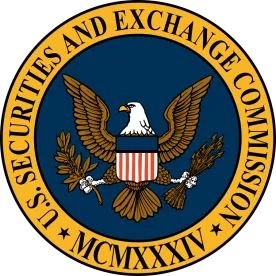The New Year is still young, but major changes are already afoot in securities enforcement as Congress amended the Securities Exchange Act of 1934 (“Exchange Act”) on January 1, 2021. It was easy to miss these changes to the Exchange Act as they were included in the unlikeliest of places – the National Defense Authorization Act for Fiscal Year 2021 (“NDAA”), which chiefly dealt with appropriations for military activities. Specifically, Section 6501 of the NDAA (“Section 6501” or the “Amendment”) offered a number of amendments to the Exchange Act, including to the SEC’s ability to seek disgorgement and other equitable relief for violations of the federal securities laws. The Amendment appears to be a direct response from Congress to recent Supreme Court decisions Kokesh v. SEC and Liu v. SEC, which arguably truncated the SEC’s ability to recover ill-gotten gains from defendants. To better understand the genesis for the Amendment and how it will affect securities enforcement going forward, a discussion of Kokesh, Liu, and Section 6501 is below.
Kokesh v. SEC
In 2017, the U.S. Supreme Court in Kokesh v. SEC rejected the SEC’s position that disgorgement is not a penalty subject to the five-year limitations period of 28 U.S.C. § 2462. In Kokesh, the SEC sued Charles Kokesh for violating federal securities law by misappropriating funds from four business development companies. The district court found in favor of the SEC and ordered that Kokesh pay $34.9 million for “the ill-gotten gains causally connected” to Kokesh’s violations. On appeal, Kokesh argued that the SEC’s disgorgement was time-barred under the five-year statute of limitations of 28 U.S.C. § 2462, which sets the time for commencing proceedings for the enforcement of civil fines, penalties and forfeitures. The SEC argued that disgorgement did not constitute a ‘penalty’ under Section 2462, and therefore no statute of limitations period applied.
The Supreme Court unanimously held that disgorgement functioned as a penalty rather than a remedial tool and was, therefore, subject to § 2462’s statute of limitations. Critically, the Court left open the question of “whether courts possess the authority to order disgorgement in SEC enforcement proceedings.”
Liu v. SEC
In 2020, the Supreme Court in Liu v. SEC answered the question left unanswered in Kokesh, holding that a disgorgement award does not exceed a wrongdoer’s net profits and is awarded for victims is equitable relief permissible under Section 21(d)(5) of the Exchange Act’s catch-all authority for equitable relief. The Supreme Court’s opinion questioned whether the SEC’s disgorgement power would be transformed into an impermissible penalty where:
-
disgorgement was not returned to victims;
-
joint-and-several liability was imposed; or
-
disgorgement exceeded the defendant’s net profits after deducting legitimate business expenses.
Although the Supreme Court’s decision in Liu generally upheld the SEC’s disgorgement power in civil enforcement proceedings, the SEC’s victory was not unqualified as the Court’s opinion imposed restrictions on the scope and amount of disgorgement that the SEC may legitimately seek. Moreover, any such efforts to seek disgorgement were still subject to § 2462’s five-year limitations period under Kokesh.
With the passage of the NDAA on January 1, 2021, Congress sought to claw back some of the SEC’s authority to seek disgorgement.
Section 6501
Section 6501 of the NDAA expressly authorizes the SEC to seek disgorgement in any action or proceeding brought by the SEC “under any provision of the securities laws” where “any person received unjust enrichment as a result of the violation.” The SEC need no longer to rely on the implied authority found by the Supreme Court in Liu. However, the Amendment is silent on the scope of disgorgement and the manner in which the SEC may seek it. We anticipate the SEC to argue that Section 6501’s statutory grant of authority frees the SEC from the restrictions on the remedy imposed by Liu, including that disgorgement be awarded to victims. We will follow to see if the SEC will have to abide by the limitations the Supreme Court imposed in Liu.
The Amendment essentially codifies the application of the five-year limitations period found in Kokesh for nonscienter-based violations. Section 6501, however, extends the limitations period to seek disgorgement for scienter-based violations to 10 years. Section 6501 also imposes a 10-year statute of limitations on the SEC to bring an action for an equitable remedy, including for an injunction or for a bar, suspension or cease and desist order; no showing of intent or knowledge of wrongdoing is required. Section 6501 includes a provision that automatically tolls “any limitations period” for defendants who remain outside the United States. Section 6501 will have an immediate impact on SEC investigations and settlements as the amendments apply to “any action or proceeding that is pending on, or commenced on or after, the date of enactments.”
We anticipate challenges to Section 6501 and future litigation over a number of issues, including whether Liu’s restrictions on disgorgement apply to Section 6501, how the tolling provision is applied to multinational defendants, or what matters are “pending” as defined by the Amendments, to name just a few. Stay tuned for updates on this and other securities enforcement matters.





 />i
/>i
